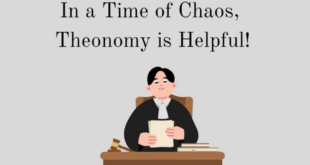Then an expert in the law stood up to test him, saying, “Teacher, what must I do to inherit eternal life?” “What is written in the law?” he asked him. “How do you read it?” He answered, “Love the Lord your God with all your heart, with all your soul, with all your strength, and with all your mind,” and “your neighbor as yourself.” “You’ve answered correctly,” he told him. “Do this and you will live.” But wanting to justify himself, he asked Jesus, “And who is my neighbor?”
Jesus took up the question and said, “A man was going down from Jerusalem to Jericho and fell into the hands of robbers. They stripped him, beat him up, and fled, leaving him half dead. A priest happened to be going down that road. When he saw him, he passed by on the other side. In the same way, a Levite, when he arrived at the place and saw him, passed by on the other side. But a Samaritan on his journey came up to him, and when he saw the man, he had compassion. He went over to him and bandaged his wounds, pouring on olive oil and wine. Then he put him on his own animal, brought him to an inn, and took care of him. The next day he took out two denarii, gave them to the innkeeper, and said, ‘Take care of him. When I come back I’ll reimburse you for whatever extra you spend.’
“Which of these three do you think proved to be a neighbor to the man who fell into the hands of the robbers?” “The one who showed mercy to him,” he said. Then Jesus told him, “Go and do the same.” Luke 10:25-37 CSB
It’s really amazing to me that many people really have never heard of the Good Samaritan. I work at a religious organization (hospital), and with onboarding staff during orientation, I have the privilege of talking about the Good Samaritan and how this reflects what we do as an organization and there truly are so many people that have never heard of this story. I even feel this story is typically is boiled down to just being a better person, however, there’s a bit more that goes with it.
First, Jesus is confronted by an expert in the law to “test him” (which is never a good idea!) and ‘what do I need to do to inherit eternal life?’ Jesus responds, “what does the law say?” And the law expert recites the two primary commandments that we see that Jesus gives in Matthew 22:36-40, which is a summarization of all of the Old Testament laws (Love God, Love People).
The law expert pushes further, revealing his true weakness. He thinks he has kept these two laws and wants to “…justify himself…” Therefore, he doesn’t see himself as a broken person needing to repent and rely on God’s grace, he wants to prove himself and push back at Jesus (a bad idea also) by asking “Who is my neighbor?”
Who is my neighbor?
The expert in the law wanted Jesus to define who his neighbor was so then he can have an easy way of seeing who he has to love and who he doesn’t have to love. Jesus doesn’t make it that simple. We actually see this in Matthew 5:43-44 CSB, “You have heard that it was said, ‘Love your neighbor’ and hate your enemy. But I tell you, love your enemies and pray for those who persecute you…” Jesus corrects their thinking that when the Old Testament said “love your neighbor,” He tells them the actual intention of what that meant: Your neighbor is everyone, including your enemies.
Conclusion
Jesus discusses that a priest and a Levite both neglect to help this man that they clearly saw but passed on the other side of the road. Their interpretation of the Old Testament was wrong. Then a Samaritan comes along and fully cares for this man, unconditionally. This is also true of what Jesus has done for you.
Jesus asks the expert in the law:
“Which of these three do you think proved to be a neighbor to the man who fell into the hands of the robbers?” “The one who showed mercy to him,” he said. Then Jesus told him, “Go and do the same.”
The expert in the law wanted parameters on who he has to love and who he does not, yet Jesus spins it around and makes the argument of “who are you a neighbor to?” This is a good question for us today. We live in a world that is wanting to pin everyone against each other: vaxxer vs. anti-vaxxer, position on the Palestinian and Israel debate, positions on Afghanistan, Republican vs. Democrat, etc. The entire Christian church should take a pause with all of this and say, “wait… Jesus says even my enemies are my neighbors. Although I may disagree with and oppose a potential injustice, it’s not the person that I’m standing against. I’m called to love that person, unconditionally, even when it hurts and is inconvenient. That does not mean I stand for them, but I care more for their soul than just winning an argument. I know who the real enemy is: sin and Satan. The person is not the real enemy.”
-Austin
 Getting Job-ed
Getting Job-ed


